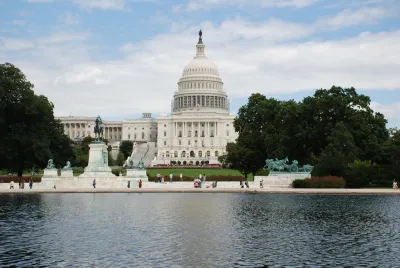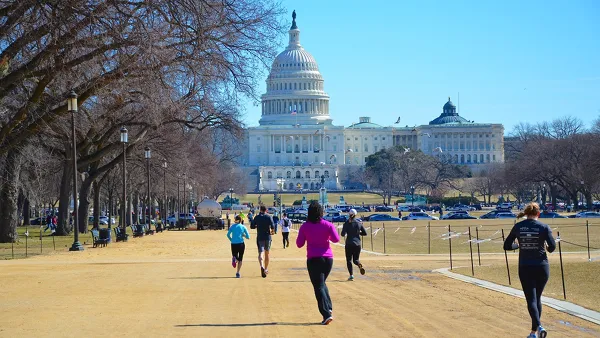Unlike the House Appropriations Committee's DOT budget that reduces spending by almost 4 percent from current levels and eliminates the TIGER grant program, its Senate counterpart increased transportation spending, including the TIGER grant budget.

The Senate Appropriations Committee voted 31-0 on Thursday to increase transportation spending by $978 million, or 5.5 percent above current levels. It also increased the budget for the Transportation Investment Generating Economic Recovery (TIGER) grant program by 10 percent to $550 million.
"Sen. Susan Collins (R-Maine), who chairs the Senate subcommittee on transportation and housing, said it was important to increase funding for the grant program given the poor condition of the nation’s infrastructure," reports Melanie Zanona for The Hill.
She was heard on a hot mic earlier in the week calling the administration’s approach to its budget proposal “incredibly irresponsible.”
Another difference with the House Appropriations Committee, which passed its transportation budget on July 17 by a 31-20 vote, was the level of funding committed to the Capital Investment Grants (CIG) program administered by the Federal Transit Administration. While both committees decreased spending for this vital program, the House did so by $659 million, or 28 percent, to $1.7 billion.
The Senate bill provides a total of $2.133 billion for the the CIG program, "fully funding all current 'Full Funding Grant Agreement' (FFGA) transit projects, which is $280 million below the FY2017 enacted level," according to Chairman Collins.
"Amtrak: The Senate bill rejects the Administration’s proposal to eliminate long-distance routes and provides Amtrak with the fully-authorized level of $1.6 billion, $105 million more than fiscal year 2017," notes the minority news release. The House committee had authorized $1.42 billion which is $67 million less than the FY2017 enacted level.
Both the House and Senate Appropriations Committees rejected the 13 percent DOT budget cuts in Trump's budget and fully fund the Essential Air Service program that provides air service in small and rural communities, which which proposed for elimination.
FULL STORY: Senate panel approves funding boost for Transportation Department

Analysis: Cybertruck Fatality Rate Far Exceeds That of Ford Pinto
The Tesla Cybertruck was recalled seven times last year.

National Parks Layoffs Will Cause Communities to Lose Billions
Thousands of essential park workers were laid off this week, just before the busy spring break season.

Retro-silient?: America’s First “Eco-burb,” The Woodlands Turns 50
A master-planned community north of Houston offers lessons on green infrastructure and resilient design, but falls short of its founder’s lofty affordability and walkability goals.

Test News Post 1
This is a summary

Analysis: Cybertruck Fatality Rate Far Exceeds That of Ford Pinto
The Tesla Cybertruck was recalled seven times last year.

Test News Headline 46
Test for the image on the front page.
Urban Design for Planners 1: Software Tools
This six-course series explores essential urban design concepts using open source software and equips planners with the tools they need to participate fully in the urban design process.
Planning for Universal Design
Learn the tools for implementing Universal Design in planning regulations.
EMC Planning Group, Inc.
Planetizen
Planetizen
Mpact (formerly Rail~Volution)
Great Falls Development Authority, Inc.
HUDs Office of Policy Development and Research
NYU Wagner Graduate School of Public Service




























